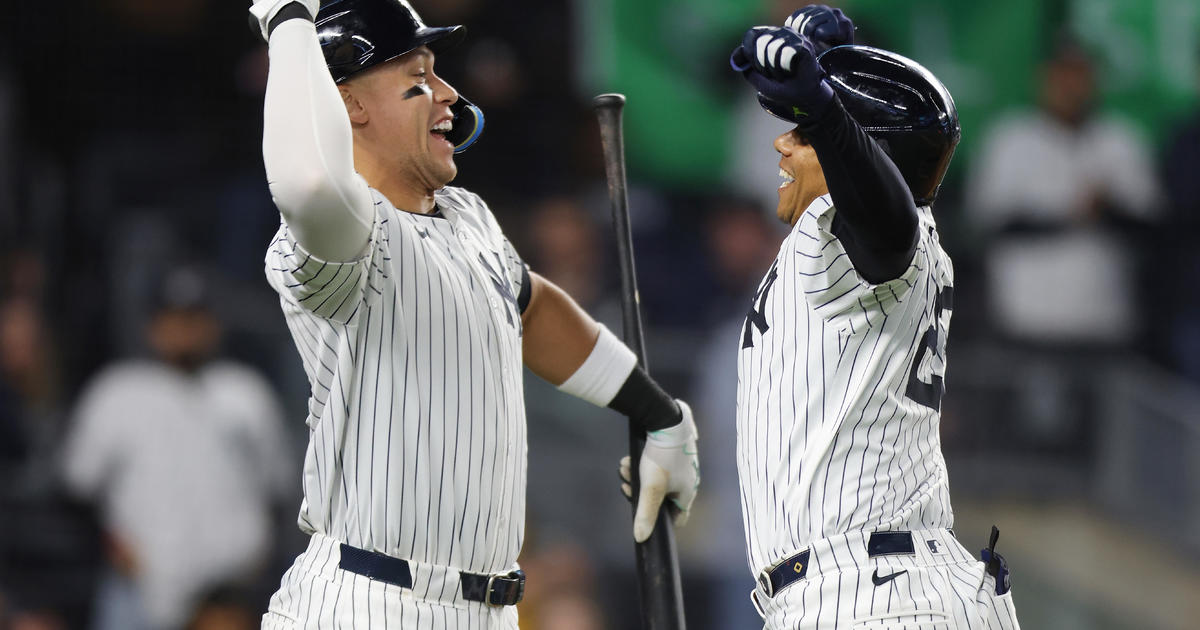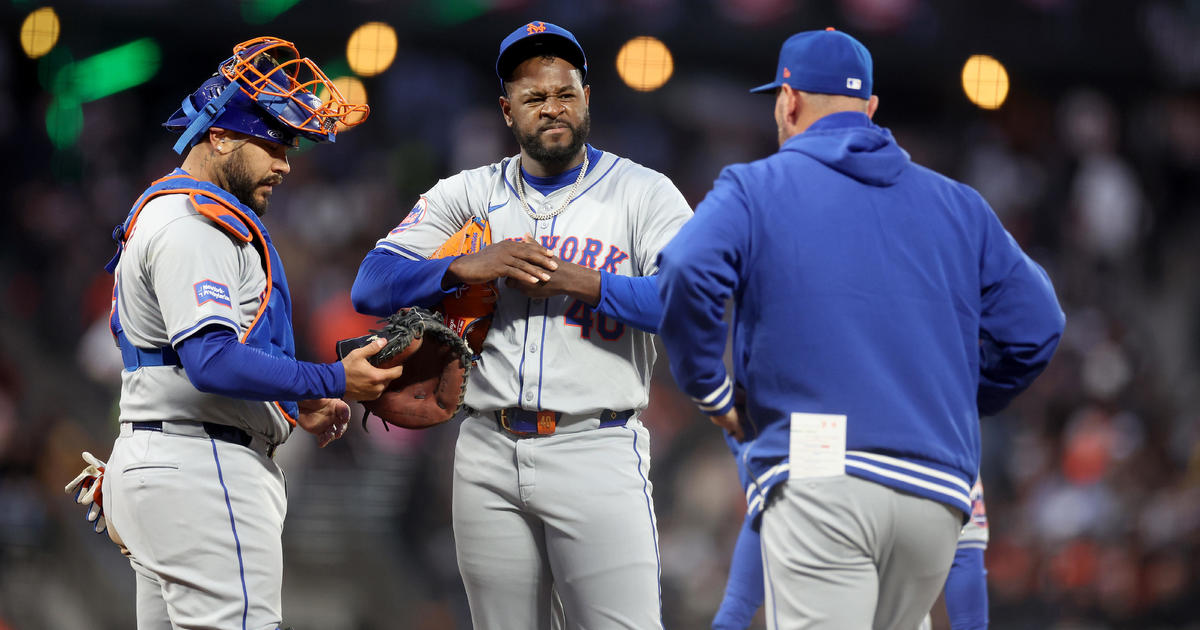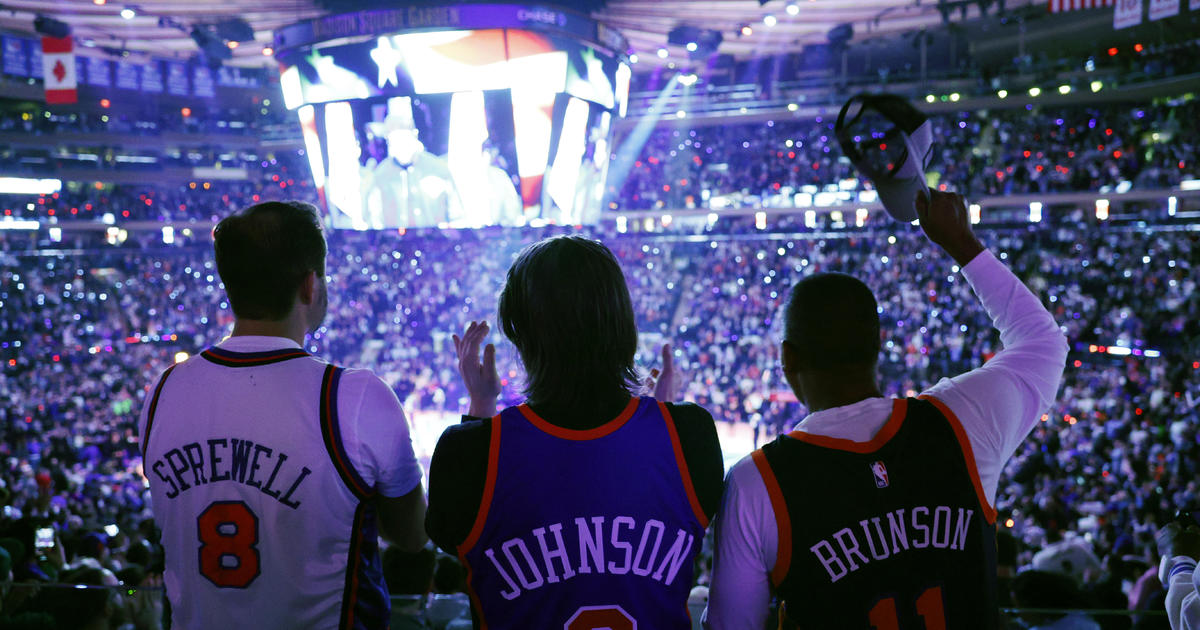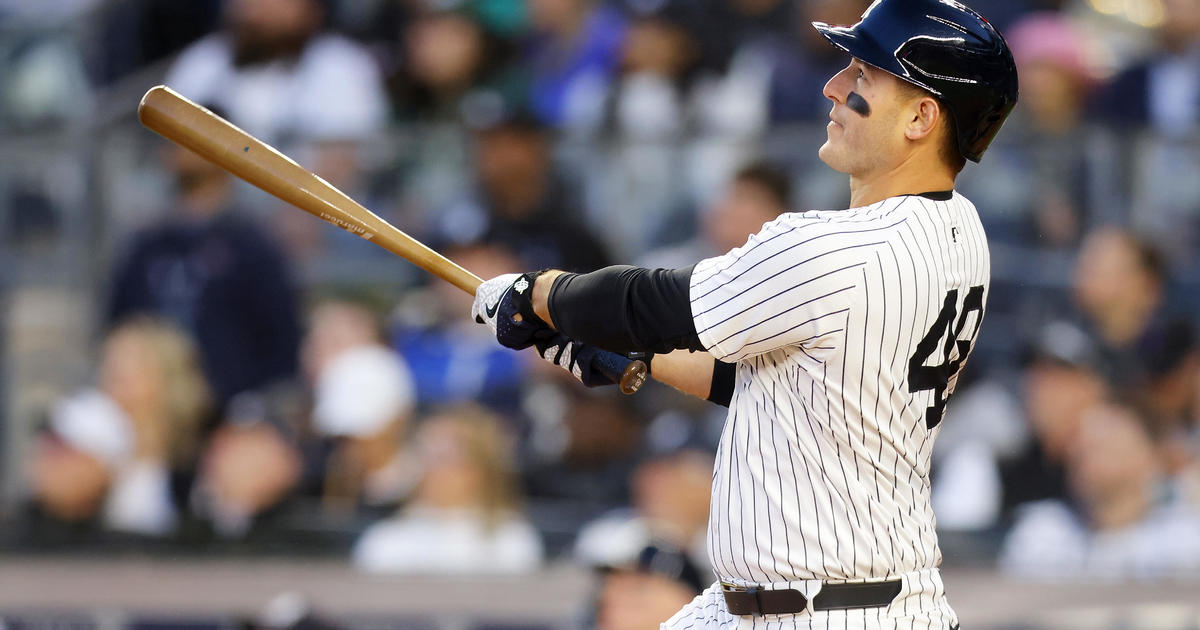In "Baseball" Sequel, Ken Burns Chronicles Steroid Era
NEW YORK (AP) — Who says Red Sox and Yankee fans can't work together? Witness Ken Burns and Lynn Novick, who just finished a sequel to their 1994 series "Baseball" — they even seem to like each other.
Burns said he thought about revisiting the series when his beloved Red Sox broke a curse and won the World Series in 2004, but the steroids story that ensnared some of the game's best players turned out to be what prompted the filmmakers — who once vowed they wouldn't do sequels (too Hollywood) — to revisit the sport.
Their film "The Tenth Inning" airs over four hours on Sept. 28 and 29 on PBS. "Baseball," shown during the Major League Baseball players strike in 1994, became the most-watched program in PBS history.
Baseball's comeback from the strike and the scandal involving players who altered their bodies through drugs provide the narrative structure for the film. It's tied together in a question asked by one interview subject, sportswriter Howard Bryant: "Is it possible to have a renaissance and a calamity at the same time?"
"The Tenth Inning" closely follows Barry Bonds as he grows up the son of a troubled Major League star, breaks in with the Pittsburgh Pirates, and sees his muscles and home run totals balloon as a San Francisco Giant. He set a record with 762 home runs yet his career ended with a whimper, clouded by steroids allegations he repeatedly denied.
His story is not framed as a simple tale of good vs. evil. It can't be simple for those who knew that injections of questionably legal drugs could greatly enhance their performance at work and potentially earn them millions of dollars.
"It's just like if I were in a war," Burns said. "Would I run away and hide or would I hold my gun and keep my position? Those are the kinds of questions I asked myself when making this project. What would I do if I were in the same position?"
The goal was to portray the athletes as human beings, not as demigods worshipped by fans.
Bonds would not be interviewed for the film, nor would other prominent players accused of steroid use, such as Mark McGwire and Roger Clemens.
Beside Pedro Martinez and Joe Torre, relatively few contemporary baseball people participate. The filmmakers instead lean on more lyrical outsiders, such as Mike Barnicle commenting about how much a World Series championship meant to people in New England.
Burns and Novick had hoped to interview more players, but were advised they wouldn't get much out of them.
"They have a certain way of talking, it's almost as if it's a flatline kind of thing," Novick said. "They say just what they're going to say. They already know what you're going to ask and they have their preprogrammed answer. It's careful and very guarded."
"The Tenth Inning" looks at the rise of Latino players, including a visit to the Dominican Republic to see young players trained in baseball academies with the hope their talents would lift them out of poverty.
Then there's the coin's other side: a visit to a baseball game played in a New York City sandlot by Latin American immigrants, all good players with minor flaws that prevented them from achieving big league dreams.
For Burns, whose earliest childhood memory is that he had a baseball mitt, "The Tenth Inning" was personal. He recently promoted the movie by throwing out first pitches at various Major League ballparks, and he recounts with childlike glee the strike he threw in Colorado.
His personal tour of horrors was the footage of past Red Sox season-ending nightmares before their 2004 breakthrough.
"I had to edit the '46 Series (for 'Baseball') where the Cardinals put the (Ted) Williams shift on," he said. "The '67 Series where 'The Impossible Dream' came up one game short. The Carlton Fisk Series where they came up one game short. The one-game playoff with the Yankees when Bucky Dent hit the home run. The ball going through Buckner's legs and then, in order to get to this, we had to go through Aaron bleeping Boone in 2003."
Ask a Red Sox fan for the translation.
The passion helped create one of the film's most sublime touches. The second the ball Johnny Damon hit for a grand slam drops into the Yankee Stadium bleachers in Game 7 of the American League Championship Series, essentially clinching the Sox win, the soundtrack strikes up the Standells' "Dirty Water," a Boston rock anthem.
With everything that has happened in baseball over the past 15 years, Burns and Novick feel their series is incomplete.
The story keeps going on.
When umpire Jim Joyce's bad call cost Armando Galarraga of the Detroit Tigers a perfect game in June, Burns immediately thought: "That's the prologue of 'The Eleventh Inning.'"
Copyright 2010 The Associated Press.



